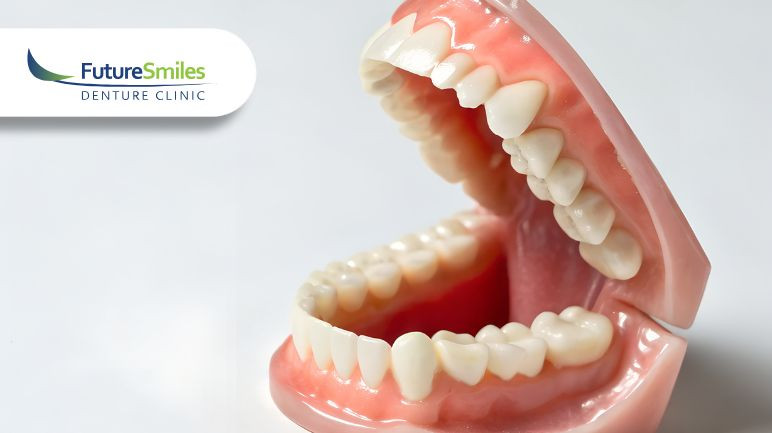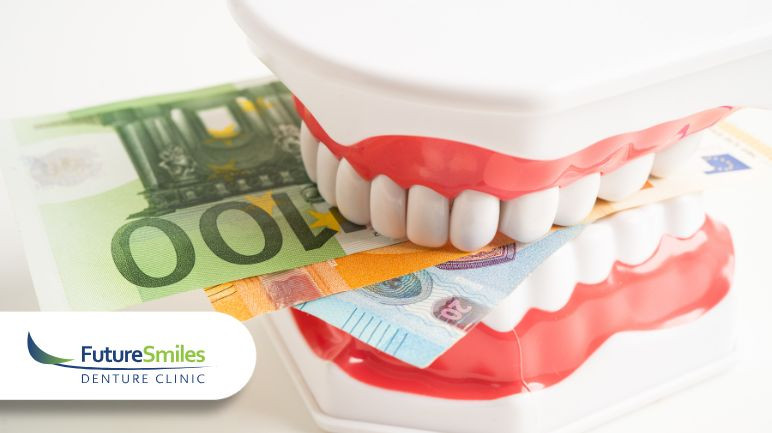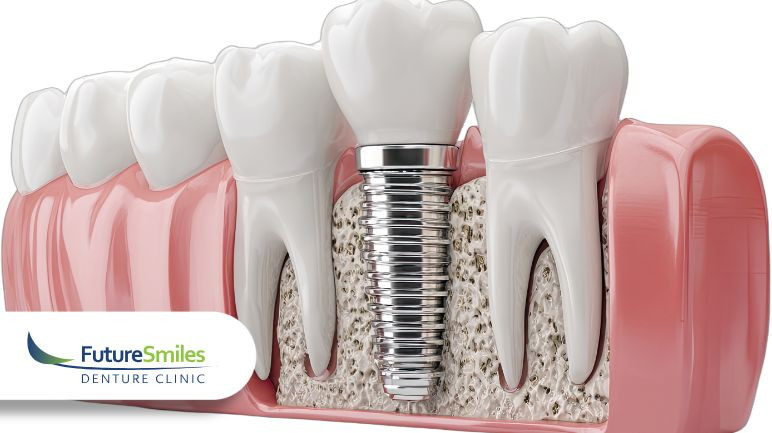Full dentures or partial dentures: How do you know which is the best option for you, or your loved ones? Many years ago, as you aged and lost teeth, it meant you would just have to live without them. Now, thanks to the many advances in denture technologies, you can have your smile back, along with the ability to comfortably chew foods again. If you are considering dentures this is the article for you. Compare types of dentures and find out which option is best for you.
Reasons for Getting Dentures
Tooth loss is considered part of growing older, but what many people don’t realize is that there are other reasons for needing dental implants such as an accident, widespread tooth loss, and untreated tooth decay. If you fall into one of these categories there is no shame in searching out a denture clinic to weigh out your options. In fact, you might be surprised by the number of people who require partial or complete dentures at some point during their lives.
The dentures of today can increase your confidence, are incredibly natural-looking, and surprisingly comfortable. They can help you chew food again, and make it easier to speak clearly after tooth loss.
Complete Dentures vs Partial Dentures: A Comparison
There are two common types of dentures you can choose from. While considerations like denture affordability may come into play here are the main factors that will determine whether, or not, to get a full set of dentures.
Partial Dentures: Partial sets of dentures are a great option to replace missing teeth when you happen to have lost a few in a row. They are essentially just removable appliances that will fill the gap in your mouth to restore your beautiful smile again. Your denturist will anchor these new teeth onto the neighboring teeth to hold their place giving you the ability to speak, smile, and chew well again.
Full Dentures: A full, or complete, denture gives you a full tooth replacement by restoring your full arch of lost or damaged teeth with new ones. Sometimes it may be necessary to remove teeth prior to placing the new dentures in your mouth to ensure there is more than enough space for them to rest comfortably over your gums. Full dentures will sit snugly by suctioning themselves to the roof of your mouth but yet are easily removed for cleaning or sleeping.
Getting Dentures: The First Step
Whether you feel a complete or partial denture appliance will be better for you, just know that both options can help to increase functional movement within the mouth and can be a great choice after experiencing tooth loss. An experienced denturist will be able to help you determine which option is best for you, or for someone you care about, in an informative and helpful consultation.
If you are looking for affordable dentures in Calgary, as well as an experienced team that can service you from dental implant through to repairs and replacements, you can trust that Future Smiles Denture Clinic will take care of all your needs. With multiple locations to serve you, reach out at 403-475-0016 or through the website contact form to learn more.
FAQs
Why get complete dentures instead of a partial set?
A full set of dentures offer many benefits to someone who has experienced tooth loss. Some of these benefits are:
- Highly functional allowing patients to eat and speak comfortably again
- Aesthetically pleasing helping to restore confidence after tooth loss
- Very natural looking in both colour, texture, and overall appearance
- A way to regain high function with very minimal downtime
Will I need to get teeth pulled for dentures?
This varies depending on whether you are getting a full, or partial set, the shape of your mouth, the health of your gums, and the state of existing teeth remaining. Your denturist will be able to confirm whether or not you need teeth pulled after a thorough examination of your mouth.
What do dentures feel like?
There will be an adjustment phase after getting a complete set of dentures. You can expect them to feel a little bit bulky and awkward as you grow accustomed to having a completely foreign object in your mouth. During this time patients will eat softer foods, and practice speaking at home with loved ones as they learn to speak with a new dental appliance.






